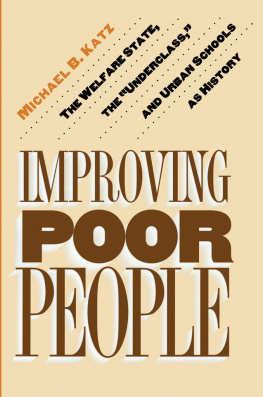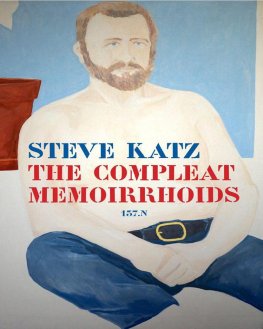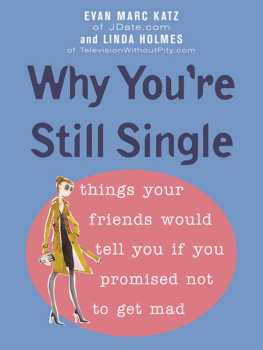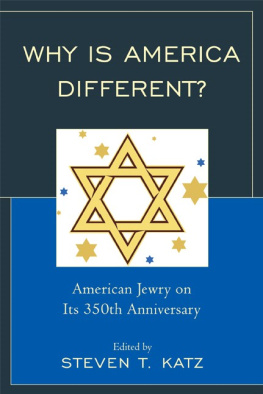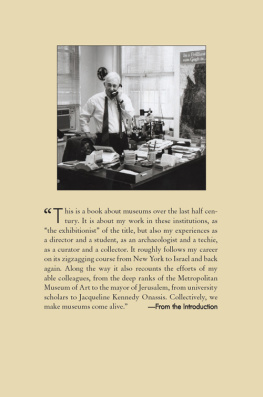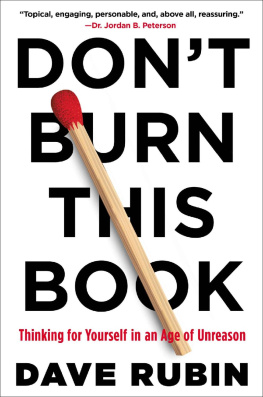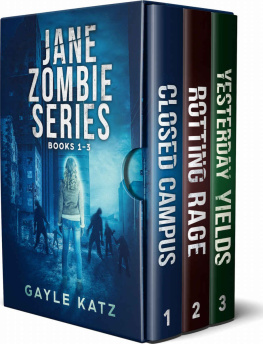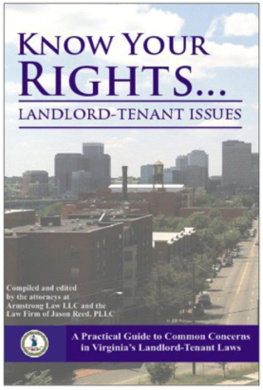Copyright 2012 University of Pennsylvania Press
All rights reserved. Except for brief quotations used for purposes of review or scholarly citation, none of this book may be reproduced in any form by any means without written permission from the publisher.
Published by
University of Pennsylvania Press
Philadelphia, Pennsylvania 19104-4112
www.upenn.edu/pennpress
Printed in the United States of America on acid-free paper
10 9 8 7 6 5 4 3 2 1
Library of Congress Cataloging-in-Publication Data
Katz, Michael B., 1939-
Why dont American cities burn? / Michael B. Katz.
p. cm. (The city in the twenty-first century)
978-0-8122-4386-4 (hardcover : alk. paper)
Includes bibliographical references and index.
1. Sociology, UrbanUnited States20th century. 2. Urban policyUnited States20th century. 3. Inner citiesUnited States20th century. 4. City and town lifeUnited States20th century.
I. Title. II. Series
HT123.K38 2011
307.7609730904
2011023321
To the memory of
Baruch S. Blumberg
(1925-2011)
Kayak buddy extraordinaireContents
Prologue: The Death of Shorty
At 1:27 on the morning of August 4, 2005, Herbert Manes stabbed Robert Monroeknown as Shortyto death on the 1400 block of West Oakland Street in North Philadelphia. No newspaper reported the incident. Arrested and charged with homicide, Manes spent the next ten months incarcerated until his trial, which ended on June 8, 2006. After deliberating less than ninety minutes, the jury concluded that he had acted in self-defense and found him not guilty on all charges. I served as juror number three.
This Prologue is the story of the trial, what it meant for me, and what it signifies about marginalization, social isolation, and indifference in American cities. It distills the essential themes of this book into an incident at once mundane and horrific. It is also the story of what I learned from Herbert Manes. It is not a neat story. Ambiguities remain unresolved, contradictions abound, ends dangle. It begins with the two main characters and where they lived.
Herbert Manes was born on June 29, 1938. His family lived south of Gerard Street, around Ninth Street, in what he says is now upper Society Hill. His parents had migrated from South Carolina before World War II but met in Philadelphia, where, after knowing each other for only two weeks, they married. Their marriage lasted more than sixty years until their deaths in their seventies. Herbert has two brothers, one of whom has died and one who works for Blue Cross and Blue Shield. He also has a sister who works for the Youth Study Center, a secure facility for youths age 13 to 18 considered a risk to the safety of the community or at risk for flight while awating their hearing before the Juvenile Court. When Herberts parents died, an aunt who lived to be 104 years old managed the family. Everyone referred to her as the boss. Herbert spent his entire early life in the neighborhood in which he was born, attending Jefferson School and then Benjamin Franklin High School. He left school to make money at age eighteen without graduating. Money became important, because after a shotgun wedding, which he claims was common at the time, his first child was born when he was twenty. In all, Herbert has eight sons, one daughter, and many grandchildren. His former wife, from whom he was divorced in the 1990s, lives in Cheltenham, a heavily African American suburb on the edge of Philadelphia. Until her retirement, she ran the dialysis unit at a local hospital. Herbert speaks of her fondly, describing her as a lovely lady with whom he stays in touch. Most of his children live in the Philadelphia area, some in Willingboro (formerly Levittown, New Jersey, and currently home to many African Americans), and three or four in the South. Herbert sees his children and grandchildren only at family reunions.
For thirty-five years, Herberts father worked for a moving company from which he received a pension. Herbert describes him as a good father and has warm memories of both parents. Herbert drove a furniture truck for the same firm for many years until, like most of the citys manufacturers, it went out of business. He then worked in steel mills, which he described as brutal work. He retired after an injury and survives on social insurance. Uncle Sam takes care of me, he told the jury. He also drove a gypsy cab.
Herbert looks older than his years. At 6 feet tall and 170 pounds, he stands slightly stooped; his close-cropped hair is a grizzled gray; his large lips protrude on one side of his face, almost as though he had experienced a stroke. Round, dark-framed glasses give him a quizzical look. For his trial, he wore an open-neck, long-sleeved light gray shirt, blue trousers buttoned at the top with no belt, and light tan workingmens boots.
Shorty remains more mysterious. In Pennsylvania and New Jersey, birth and death certificates remain closed to all but relatives and their attorneys. As one of the jurors who had acquitted Shortys killer, I could not just show up on his brothers or sisters doorstep asking for biographical information. Nor would it be safe for me to roam his neighborhoods streets in search of friends and acquaintances to interview. A friend offered to help by contacting two people with local networks. But the unpredictability that disorganizes lives on the citys mean streets intervened. One man was arrested and jailed before he could cooperate. Another potential informant was shot in the head and killed on a violent Saturday night when three other men also met their deaths between midnight and three in the morning.
This much is known: Shorty was born on August 26, 1964, in Neptune, New Jersey, where he lived until at least age ten. His brother and sister still live there. Like Herbert with his gypsy cab, Shorty was part of the informal economy found everywhere in Americas inner cities. Shorty worked on the street as a freelance mechanic. In Philadelphia, many street mechanics work near auto supply stores. Customers purchase parts in the stores and bring them to the mechanics. The activity violates a city ordinance, but no one seems to care. Although only 5 feet 2 inches tall and 147 pounds, Shorty was expert in martial arts. Herbert described Shortys strength and powerful build; he was, said Herbert, impossible to fight in any straightforward way.
Shorty was well known to the police. Between July 23, 2001, and January 29, 2003, he was charged with offenses ten times. His alleged crimes ranged from unauthorized use of an automobile and other vehicles to theft by receiving stolen property, criminal trespass, burglary, retail theft, and drug-related offenses. Remarkably, each charge was either withdrawn or dismissed. For a long time I was puzzled by Shortys ability to escape criminal charges unindicted; he truly seemed to be a Teflon man. His history began to make sense in December 2009 when the Philadelphia Inquirer ran a series of articles under the banner Justice: Delayed, Dismissed, Denied. In Americas most violent big city, the investigation discovered, people accused of serious crimes are escaping conviction with stunning regularity. The statistics told a depressing story of administrative incompetence. Only one in 10 people charged with gun assaults is convicted of that charge.... Only two in 10 accused armed robbers are found guilty.... Only one in four accused rapists is found guilty of rape. In most big cities prosecutors win about half their cases; in Philadelphia they win 20 percent. It is a system that all too often fails to punish violent criminals, fails to protect witnesses, fails to catch thousands of fugitives, fails to decide cases on their meritsfails to provide justice. In Philadelphia, Shortys ability to walk away from arrests now appeared more the norm than the exception.




